- Home
- Brian Garfield
Threepersons Hunt Page 4
Threepersons Hunt Read online
Page 4
“No. Nothing at all. We’re still working on it.”
“Then for all we know he could still be in Florence.”
“Not unless he’s a mole. We’ve done a house-to-house.”
“He’d know how to lie up in the brush.”
“The dogs would have found him.”
“Not if he got his hands on a bottle of vinegar.”
“You think he’s that bright?”
Watchman said, “I don’t know the man. What do you think?”
“He didn’t impress me as being very bright. But you could have a point—that’s the kind of tidbit they pass around the mess table in slam. He could have picked up that information and remembered it when he passed somebody’s kitchen window. But I don’t set that much store in it myself. A well-trained hound won’t be discouraged by a little vinegar.”
Wilder pushed the papers together into a stack, the notes and the files on Joe Threepersons. He put them in a manila accordion-file envelope and wrapped the closer string around its disc, and passed it over to Watchman. “Anyhow I’ll ask the Florence police to give it another once-over. I doubt he’s still there, it’s been too long.” A glance at his wristwatch: “They busted out of there sixty-three hours ago.”
“It’s a pretty cold trail and we don’t seem to have any leads at all. Don’t expect miracles.”
“I never do.” Wilder sounded weary.
“Where do I hang my hat now?”
“It’s a road job. You don’t need a desk, do you? I hope you don’t, we haven’t got any to spare. Damned building’s bulging at the seams.”
“You’ll pull Buck Stevens in this morning?”
“If I can get the captain’s okay. I’ll get on it right away.” Wilder gave him the benediction of a meager smile. “Good luck anyway. I suppose I should say that. I don’t really expect you to find him unless he makes a stupid mistake. That’s what usually nails them.” He spoke like a man moving toward cynicism, as if he’d lost his faith in good police work.
“How important is it? Finding him I mean.”
“On a priority scale of one to ten it rates about an eight. It wouldn’t rate that much except he’s getting a pretty good press—one widower Indian at large in spite of dogs and everything else the Establishment can throw against him. It’ll give the department a black eye if he stays loose too long.”
And it’ll look a lot less like an underdog getting ground up in the computerized meat grinder if an Indian’s the one who nails him. That was the unspoken kicker but they both knew it and it made Wilder break out his sad little smile again.
Wilder’s intercom phone buzzed. Wilder picked it up but held the mouthpiece cupped in his palm while he spoke to Watchman. “You need anything else?”
“Not right now.” Watchman got out of the chair and Wilder lifted the receiver, talked and listened, then reached for the outside telephone and answered it. With his hat in one hand and the Threepersons file in the other, Watchman got to the door but Wilder’s voice arrested him:
“Wait one, Sam.”
Wilder went back into the phone: “Give me that again.” He penciled something on his calendar pad.
There were more grunts and murmurs and finally Wilder cradled it and ripped the page out of the pad. “A break. City P.D. found a hot wagon along the Grand Canal early this morning. They just got done tossing it and labbing it and guess whose prints are all over the damn thing.” The sad smile. “I did say he wasn’t too bright, didn’t I.”
Watchman looked at the scrawled jottings. “Stolen out of Florence last night.”
“So the son of a bitch was hiding out in town all the time.”
“Okay,” Watchman said, “but how did he know when the dragnet was lifted?”
“Maybe just luck. He knew we couldn’t keep the town bottled up forever.”
“Do you believe in that kind of coincidence? Look at the timing—he had to come out in the open and steal that car within a few hours after we called off the roadblocks. How did he know?”
“Maybe he had a radio with a police band.”
“And knows all the signal codes by heart?” Watchman shook his head. “And he wouldn’t be traveling around in a prison uniform, somebody’d have spotted him. So he got himself a change of clothes.”
“I think we’ll make a detective out of you all right.”
“What I’m saying is he must have had outside help.”
Wilder said, “Your job to find that out.”
Watchman went to the wall map and traced the line of the Grand Canal on the inset city map of Phoenix. “Along North Sixteenth,” Wilder said. “Mean anything to you?”
“Two blocks from the Federal Indian Hospital. Where’d they take his wife after the accident?”
“City morgue I imagine. Case like that, there’d be an autopsy, they’d check for alcohol or drugs in the system.”
“But would Joe Threepersons know that?”
“That’s another good question. You find out, all right?”
“Here’s another one. Why leave the car here?”
Wilder said, “That one I can make a stab at. You don’t hang onto a hot car any longer than you have to. You ditch it and steal another one. If you keep changing cars nobody has time to catch up with you because it takes time to post a car onto the hot list.”
“If he’s that smart he’d be smart enough to wipe his prints off, wouldn’t he?”
“He would unless he wanted them to be found. But we may be giving him credit for too much smarts.”
“Why would he want them found?”
“To make us think he’s still in Phoenix.” Wilder smiled again. “You can read anything into it you want to, Sam, but the only way to find the answers is to go out and do the legwork.”
Watchman swung toward the door but stopped with his hand on it. “Am I uniform or plain?”
“You can suit yourself. If you go plain you’ll have to use your own wheels, but you can voucher the mileage.”
Watchman considered it. A lot depended on what types you had to interview. Some were put off, closed up, by the uniform; others were scared enough to open up.
Waiting for Stevens to come in off patrol he sat in the canteen with coffee and the file. It didn’t tell him much. Joe Threepersons had confessed to the murder of Ross Calisher; the confession had been obtained lawfully with his attorney present.
Subject had been born at Cibecue on October 5, 1941; it made him some two-and-a-half years younger than Watchman. Raised mainly at Whiteriver and nearby communities on the White Mountain Reservation. Mother died 1947, father died 1962. One brother, born 1934, died 1953 in South Korea. One sister, Angelina, born 1944, evidently still alive.
Bear that in mind, he thought. They were only three years apart in age. How close were they? Would the subject expect his sister to hide him out?
Subject had been educated after a fashion at mission schools on the Reservation; evidently he hadn’t been much good at school—at fifteen he had gone to work for one of the white-managed cattle operations at Whiteriver. In 1959 he had gone into the Army for two years with a nine-month stint in West Germany, two months of which he had spent in the stockade—his first recorded criminal conviction. (Assault on a noncommissioned officer.) It appeared he had frequent problems with his temper. Returned to Arizona in August 1961, and the record showed three arrests for drunk-and-disorderly and one for drunken driving, all in the space of the next seven months. It wasn’t unusual. A lot of them came home from the Army, took one look at the Reservation and spent their back pay on whiskey.
In June 1962 subject had been arrested in Showlow and was subsequently convicted of assault on a police officer. Sentence suspended. At the time he was employed by the tribe’s lumber and sawmill operation; capacity unspecified, but probably ordinary laborer. There was another arrest for D-and-D in Globe—September 1962—and then the file showed no further arrests until the Calisher homicide in 1968.
Rap-sheets were not character s
tudies but things were visible between the lines. There was recorded the marriage of subject and Maria Poinsenay, a San Carlos Apache girl, on December 3, 1962, and it was significant that after the wedding there were no further arrests on the subject’s record.
There was an oddity about the wedding. A Christian ceremony had been performed at the Baptist mission at Cedar Creek, where briefly subject had gone to school in 1954/55, and that was unusual because it was the groom’s bailiwick, not the bride’s. Also the newly weds had not gone down to San Carlos to set up housekeeping among the bride’s relatives and this was another break with tradition.
The record showed the birth of a son, Joe Junior, “on or about” October 18, 1963, with baptism performed at the mission early in November. At this time subject was described as a resident tribal member of the White Mountain Apaches but a paid (and taxed) employee of Rand Enterprises, so evidently he had got the job on Rand’s cattle ranch within a few months of his marriage. He had held the job, it appeared, without trouble until September 4, 1968, the date of his arrest on the murder charge.
Buck Stevens arrived at eight-thirty and Watchman looked up from his ruminations. “Busted both legs getting here, didn’t you.”
Stevens had a rowdy grin. “You on the warpath again?”
“What coop they find you in this time?”
“Sam, your whole trouble in life is you never learned the importance of the coffee break.”
Watchman shoved the Threepersons file at him. “Here, read this in the car. Let’s go.”
“Where to?”
“Uptown.”
Watchman filled him in on the broad outlines on the way to the parking lot. Stevens had not turned in his cruiser and they used that, Watchman driving while Stevens opened the folder.
He let Stevens read without interruption; he concentrated his attention on the traffic. Phoenix was turning into a second-rate imitation of Los Angeles, smog and all.
Finally Stevens laid the dossier on the seat between them. “I hear the son of a bitch is a mean hand with a rifle.”
“Where’d you pick that up?”
“I don’t know. Somebody around the squad room. Everybody was talking about the jailbreak that day. I guess you weren’t around.”
Watchman had been on traffic duty west of Gila Bend that day; he’d only heard about the break on the radio.
“You know that guy Porter, used to partner with old Gutierrez? He comes from up there in Apache County someplace—Showlow, I think. He used to go to all those turkey shoots at the rod and gun clubs up there. He says if Joe Threepersons was entered in the shoot, nobody else had a chance.”
“Now that’s news to comfort a man.”
Watchman fitted the cruiser through a narrow space between trucks and squirted ahead a block and searched for the next gap in the traffic.
Suddenly Buck Stevens said, “It’s that God damned sister of hers,” reviving a conversation Watchman had thought dead four days previously. “We should have strung her out over an anthill.”
“Shut up,” Watchman said.
Lisa …
“I wish it had worked out with you two.”
Watchman gave him a bleak glance and ran the amber light. “In just a minute you’ll be picking up your teeth with two busted arms, white man.”
Stevens had a brash grin, a lot of teeth. “Sam, right now you’re so easy to goad it almost ain’t even fun any more.”
“Then quit it.”
“You ought to get it out of your system before you keep it bottled up so long it starts to rot.” Stevens crossed his legs with one knee against the dashboard. “You know you’ve changed some since I used to know you up north.”
It went both ways. Stevens had filled out in the past six months. He was getting just a bit of a belly on him from the roadside hamburger lunches, the French fries and root beers. In another five years he’d be a cop with a big gut on him but right now he still had youth, the amiable rookie look.
Stevens had partnered in Watchman’s car on the final lap of his training program until a rifle bullet had taken him off patrol last October. When he’d come back on duty in January the department had rewarded him with a one-man car at the Willcox division and Watchman hadn’t seen him again until a week ago when Stevens had finished his tour of duty at Willcox and got his transfer to Phoenix.
It was nothing against Buck but he had won the headquarters assignment with less than a year’s service while Watchman had spent ten years on back-road boondock beats; promotions and good assignments came a little faster for blond Anglos than they did for a dark-faced Navajo whose features were as bone-craggy as those of a Frederic Remington warrior.
Stevens said, “You look like you’ve been sucking lemons.”
“Button it up, will you?”
“Hey this is Buck, remember? Old paid-his-dues Buck, your faithful white companion?”
“I thought I taught you to step away from a snake that looks mad. You don’t keep prodding it with your finger.”
“It wasn’t me that made you mad, it was Lisa. Quit taking it out on me. Hey we traveled some miles together, or maybe you forgot. Sam you used to be a friend of mine.” Stevens took a breath and met his eye. “I’m still a friend of yours.”
Watchman made no reply. Shortly thereafter Stevens uncrossed his legs and looked at the street signs at a passing intersection. “Where we headed, anyway?”
“We’ll check out the area where he ditched the Ford. Maybe somebody saw him around the hospital.”
“Sounds like a dead end to me. What if somebody did see him? So what?”
“I’d welcome suggestions.”
Two red lights later Stevens said, “Yeah, well let’s check out the hospital.”
4.
In a dour frame of mind Watchman emerged from the hospital and squinted against the midmorning blaze. Stevens said, “Zero. Now what?”
“For once in my life I’m going to take Captain Custer’s advice.” He started the cruiser and put its nose out into Sixteenth Street.
“The Reservation?”
“Aeah.”
“Then why are we heading back for the HP building?”
“Pick up another cruiser. You can keep this one.”
“To do what?”
“Poke around Phoenix. Take the mug shots with you, ask around. For all we know he’s still in the city—he left the car here. Check out his wife’s house, that curio shop where she worked, any friends she had around there. Maybe she said something to somebody. Maybe Three-persons was snooping around her house before he ditched the Ford—maybe somebody saw him. Hell, be a detective.”
“Sure.” Stevens patted a yawn. “I guess it’s a way to pass the time.”
They drove without conversation toward the center of the city but finally Stevens picked up the Threepersons file and thumbed through it the way a bank teller would count money. “Don’t they know all this paper’s a fire hazard?”
“Way back there was an old chief who noticed how the white people thought paper had some mysterious power. If a white man loses his papers he’s helpless—you hear white preachers say nobody gets admitted to Heaven unless there are writings about him in a great book. That old chief was a wise man.”
“You guys never had any writing at all, did you.”
“Didn’t need it. That old chief said words that are true sink deep in a man’s heart and stay there.”
“How’s anybody know what this old chief said if nobody wrote it down?”
“There was some anthropologist. He had a tape recorder. You ever see an anthropologist without a tape recorder?”
“I don’t know. But I never saw a cop without two and a half tons of paper.”
“Look Buck, I’m sorry I jumped down your throat before.”
“No charge.”
“I just don’t want to talk about Lisa right now. Whole thing’s still too raw, you know?”
Stevens had kind eyes when he wasn’t hiding himself behind wisecracks
. “It’s only I was worried a little that maybe you got sore because I got the headquarters beat so fast.”
“You can’t help it you had the misfortune to be born blond. You’ll just have to learn to live with your handicap.”
It wasn’t bitterness; he wasn’t sure how to define it. If there was blame it wasn’t Buck’s. Watchman had been looking at his boondock beats and was beginning to realize he wasn’t sure how long he was willing to go on accepting it.
He’d had an offer from Diego Orozco’s private agency in Phoenix. The pay was half again his present salary and it meant he’d have a permanent base of operations instead of being transferred from ghost town to ghost town every year. But the work wasn’t movie-private-eye stuff, it was industrial espionage and tracers: repo cars, missing persons, errant spouses.
There’d been a feeler of interest from the Federal narcs but that would mean dealing with human garbage all the time and he wasn’t zealous enough for that line of work. Ambition had never burned many holes in his pockets. He had a tendency to drift; he knew he’d let it all ride a while until one day something deep in his viscera made the decision for him. When the time came he’d know.
5.
Wilder had two bits of information for him, one from the city police. The rear license plate of the stolen Ford had been smeared with mud. “I’d call it a mark of hasty professionalism. An amateur wouldn’t think about the license plates at all. A pro with the right connections would change the plates. But a guy who knows the ropes, if he’s in a hurry he’ll mud them up a little, enough to change the shape of one or two digits. Judging by our profile on Threepersons I don’t think he’d have thought it up by himself.”
Watchman said, “What’s the other item?”
“He’s got a sister.”
“I know. What about her?”
“She lives in Whiteriver,” Wilder said. “Alone.”
Watchman looked at him. “She’s twenty-eight.”
“I can’t help that, Sam.”
Watchman went into the canteen and bought a cardboard cheese sandwich from the machine and a container of coffee. It was pushing ten o’clock and if he didn’t hit the road the whole day would be destroyed; it was a good three hours’ drive up to the Reservation.

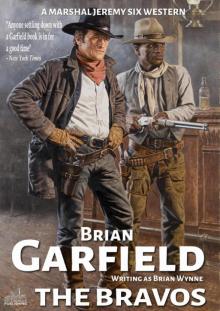 Marshal Jeremy Six #3
Marshal Jeremy Six #3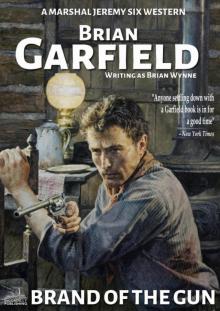 Marshal Jeremy Six #6
Marshal Jeremy Six #6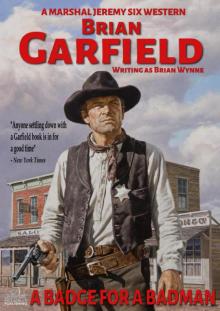 Marshal Jeremy Six #5
Marshal Jeremy Six #5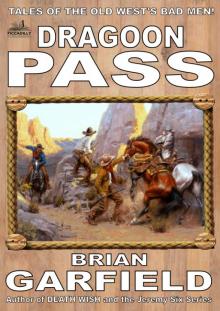 The Outlaws 2
The Outlaws 2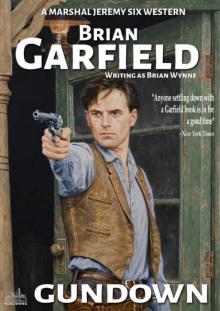 Marshal Jeremy Six #7
Marshal Jeremy Six #7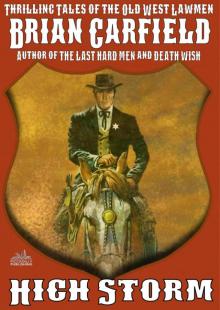 The Lawbringers 4
The Lawbringers 4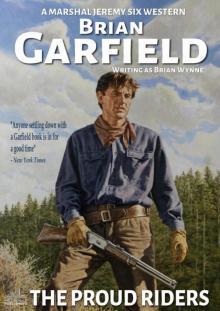 Marshal Jeremy Six #4 the Proud Riders
Marshal Jeremy Six #4 the Proud Riders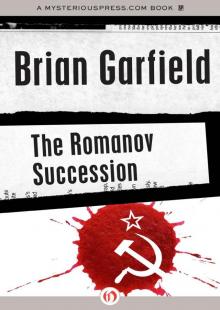 The Romanov succession
The Romanov succession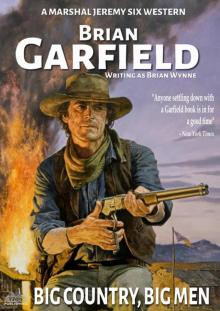 Marshal Jeremy Six #8
Marshal Jeremy Six #8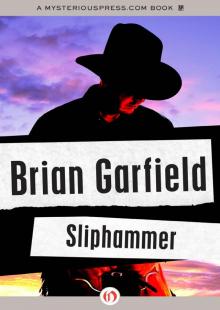 Sliphammer
Sliphammer Line of Succession
Line of Succession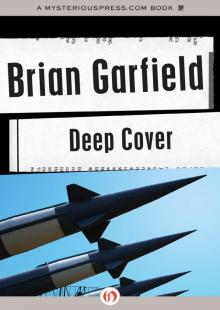 Deep Cover
Deep Cover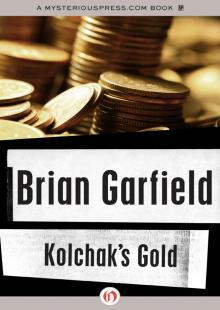 Kolchak's Gold
Kolchak's Gold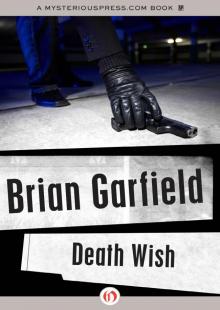 Death Wish
Death Wish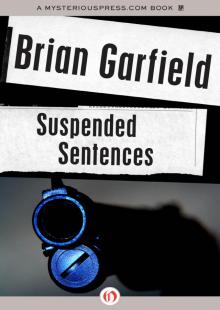 Suspended Sentences
Suspended Sentences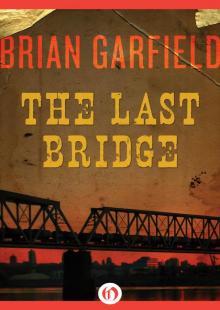 The Last Bridge
The Last Bridge Relentless
Relentless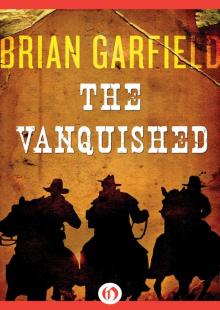 The Vanquished
The Vanquished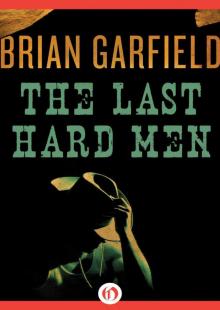 The Last Hard Men
The Last Hard Men Hit and The Marksman
Hit and The Marksman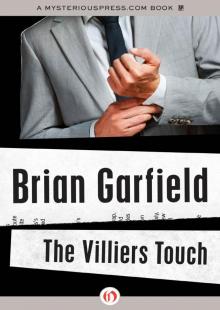 Villiers Touch
Villiers Touch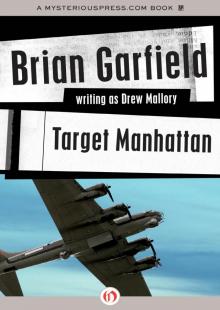 Target Manhattan
Target Manhattan Marchand Woman
Marchand Woman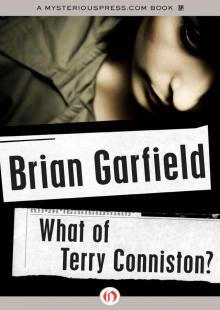 What of Terry Conniston?
What of Terry Conniston?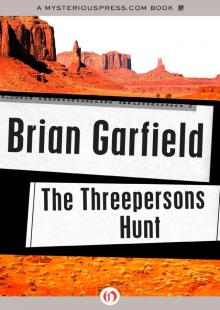 Threepersons Hunt
Threepersons Hunt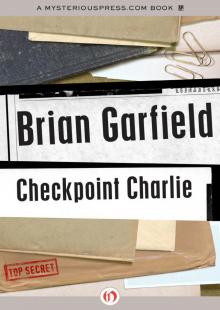 Checkpoint Charlie
Checkpoint Charlie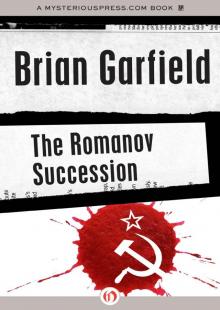 Romanov Succession
Romanov Succession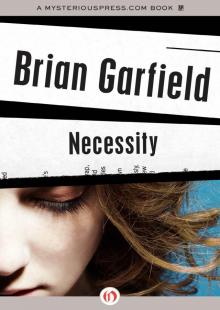 Necessity
Necessity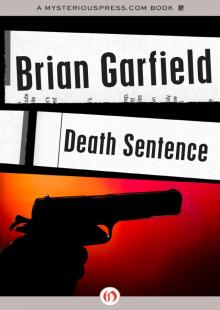 Death Sentence
Death Sentence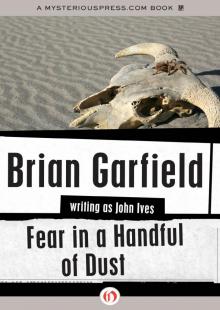 Fear in a Handful of Dust
Fear in a Handful of Dust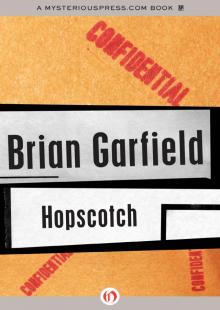 Hopscotch
Hopscotch